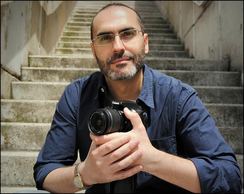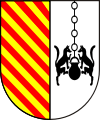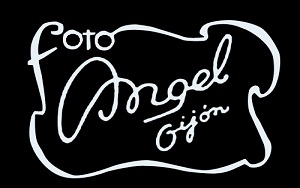
The intuitive and deliquescent works of Eduardo Yagüe
Let’s explore something a bit darker. A perfect antidote for these bright and sunny days.
Eduardo Yagüe studied Dramatic Arts and Spanish Language and Literature. In Madrid he worked as an actor in theater and film. Parallel, and as a hobby, he’s has been writing poetry and stories since he was fifteen. All these things show when you look at his films. Eduardo understands the language of the camera, the subtleties of timing and the potential of human expression.
INSOMNIO
‘Insomnia’ is a poem by American actor and playwright Sam Shepard. It is included in his famous book Motel Chronicles and had a big influence on Eduardo when he was a drama student. This book was also part of the basis of the film Paris, Texas by Wim Wenders .
Insomnia is a chain/ Insomnia is a loop/ Insomnia is a vicious circle
Right now/ Inside my skull/ Inside the bones
My neck turns/ Cartilage moves/ I like the sound of my own bones
In the midst of this emergency/ I think of you/ And only you
In the midst of all this sleepless blood/ Your pink lips/ Your arms upstretched
I can’t breathe without you/ But this circle of ribs/ Keeps working on its own
We enter the film looking at a close-up of a young man. On the waves of the underlying score (by Massacre Divino), we witness a beautiful shift of expressions on the man’s face.
“I am interested in mixing genres, searching the limits of poetic and cinematographic languages. I love the actors trying to be an emotional mirror to the viewer and staring at the camera, leaving them exposed and questioning with their gaze, giving pure emotions, I love suggested stories with an open reading, all with the base of touching and intense poems.”
It takes Eduardo just a few shots to set a poignant and tender portrait of an insomniac. Great details (the fly, the hand under the shirt), careful use of colors (white, and then the contrast with the faces) and a strong use of the music that shifts between dreamy and eerie. The whole video is loaded with tension and has a strong sexual subtext.
“The video was thought to have the poem read, but I decided not to include in the final cut, Miquel´s lips recite the final lines of the poem on Julio´s lips, but they can´t be heard, the haunting music dominates the audio of the video. I was interested in doing a very free reinterpretation of the text of Sam Shepard, something very personal perhaps closer to a piece of video art than a video poem.”
Good call. There’s no need (no room even) for a poem in this short film. Yet it is there in every single shot. This is powerful because it’s sober. The film shows little and it shows everything. It leaves plenty of room for each viewer’s own story and interpretation.
Process notes by Eduardo:
"At first I thought to record with a man and a woman, but the opportunity arose to work with actors Julio Rojas and Miquel Insua and I found a very interesting magic between them. I was looking for white light, I wanted to get away from the night, when suffering insomnia, to create a paradoxical environment, nightmarish, almost crazy (the kind of madness that an unhealthy love relationship can take you suffering insomnia) and contrast that with the intriguing black screen with the little red man in the end. In this video weird things happen, it is very dreamlike, surreal and very sexual. The final shot is a tribute to the start of Persona, by Bergman, but also the explosion of what has been hidden during all the video."
AMOR
‘Amor’ is a poem by great Uruguayan poet Idea Vilariño. It is a gritty, tough, deep text, which invokes love from pain and death. Pure beauty.
I could say the same thing about the film. Two2 parts in the film. In the first part we hear the poem while looking at a woman’s face.
Very little movement. As in theatre, when you hardly move, the few movements you do make matter a lot. Every drop of feeling, subtext and importance is in those little gestures. It’s the same in this first part of ‘Amor’. Her eyes turning away from the camera tell us so much. It would have been feasible to end the videopoem with that first part. And I would have loved it (for different reasons maybe).
Yet Eduardo pushes the boundaries and invites us to be a voyeur in the second part of the film.
“…the second part, which is my reinterpretation: The ambiguous and violent story that the poem suggested me.”
“During the recordings I let myself be guided much by intuition, I have the feeling that the story many times appears on the set, I have to be very open and focused to capture the poetic spirit floating on the recording location, in the light, in the composition of the plane I choose, in the actors... It’s like writing a poem, the process ends in the editing, which is like rewriting the poem and giving it the final shape, though before to the recording it is a very long and hard work and sometimes obsessive research on what I pretend to show.”
The second part of the film could be a prequel to the first part. A short but meaningful intro leads us into a filmed theatrical performance. Yes, set in a distinctive and more filmic setting, but a theatrical and powerful performance nevertheless.
“I am also interested in improvisation with the actors. Actors usually know they are going to record "something" that has to do with a poem they have read previously. And they know the general idea what we are going to record. This lack of preparation of a character gives their performance a point of very interesting and poetic mystery, along with a great realism in their acting. I always work (with some exceptions) with professional actors.”
It’s the combination and ‘clash’ between part one and two that makes this a very strong video poem. Subdued and exuberant, calm and explosive.
Process notes by Eduardo:
“Cristina Romero’s performance is risky, overwhelming and cathartic. The presence of the actor Cesar García is intriguing, cold and symbolic, representing love and death. Eros and Thanatos, favorite themes that I kept researching on my next video GREEN STONES IN THE HOUSE OF NIGHT. The location was very important for the recording of LOVE, a huge abandoned house that acquires an almost menacing disturbing role. Elements and sounds that I like to work with reappear, water, keys or bells. This is another video with a surround and obsessive music which also becomes very important.”
Eduardo Yagüe creates beautiful, strong works. Tender details, powerful images, distinct cinematography and neat editing, demonstrating a strong knowledge of acting and human characters. What’s stopping you from revisiting these again?




 Avenida Hermanos Felgueroso 25
Avenida Hermanos Felgueroso 25 Hemos incorporado a nuestro sitio web el protocolo seguro https, que permite una navegaci�n segura y privada.
Hemos incorporado a nuestro sitio web el protocolo seguro https, que permite una navegaci�n segura y privada.